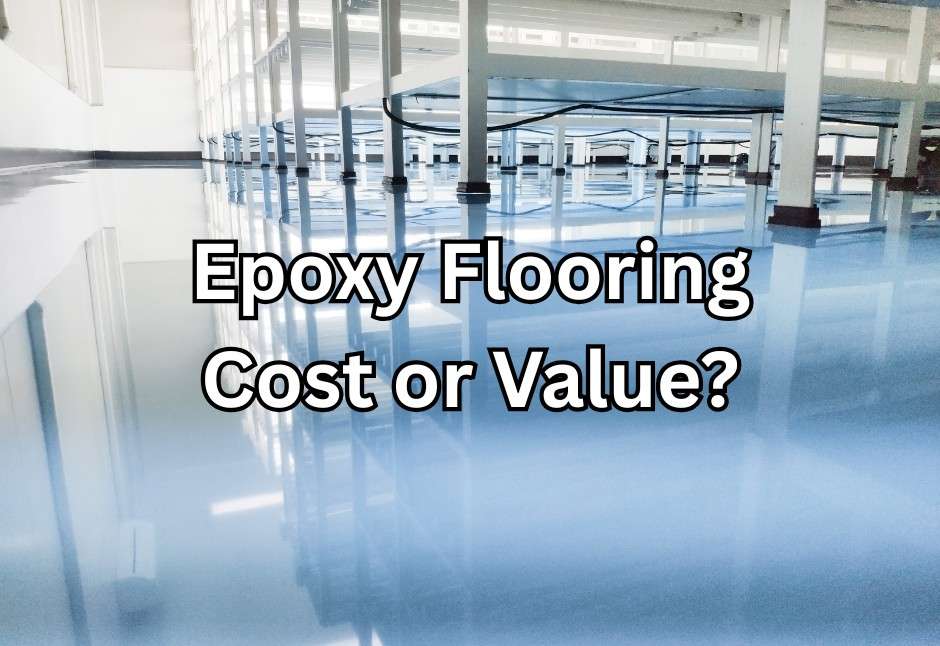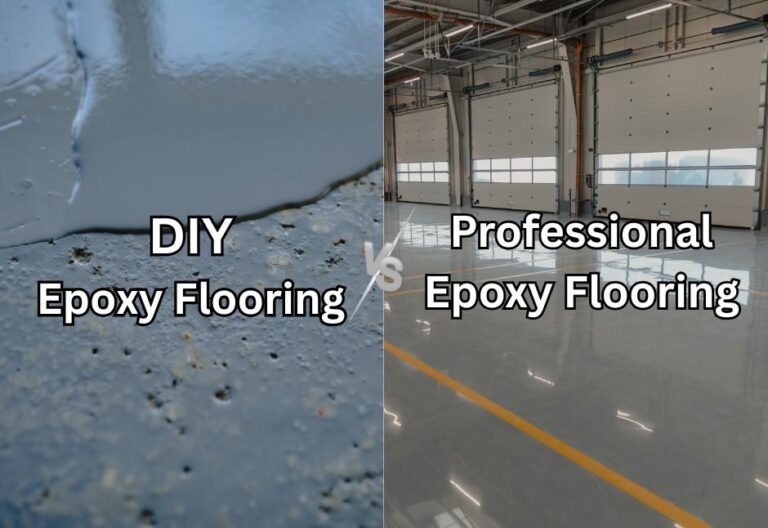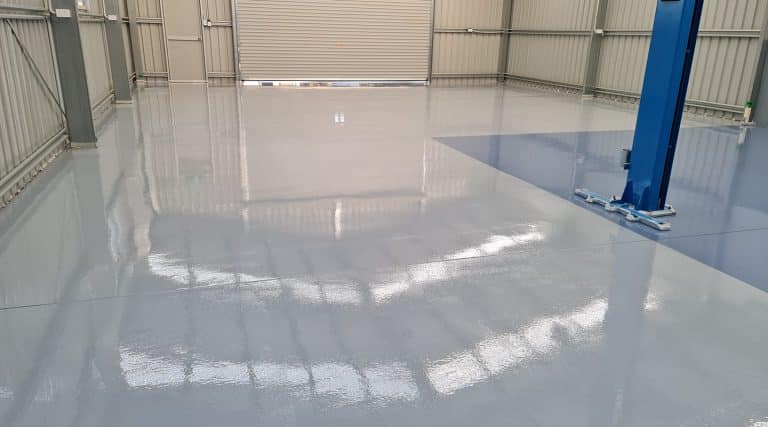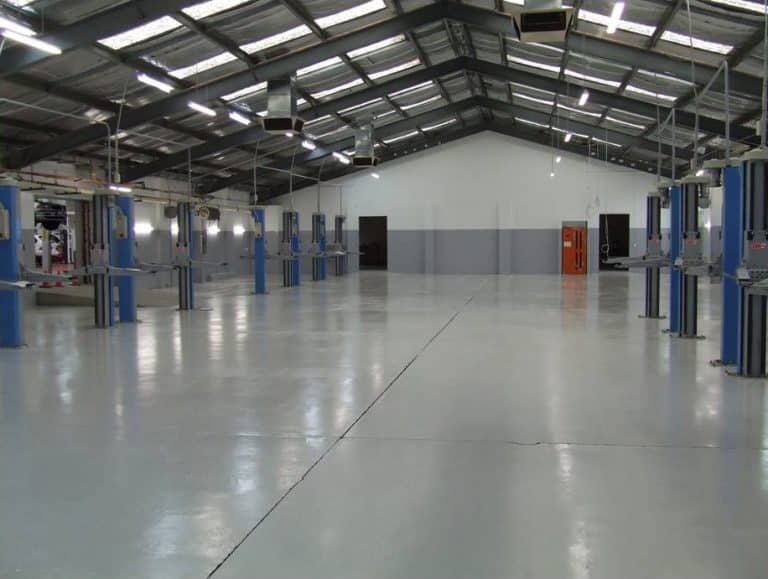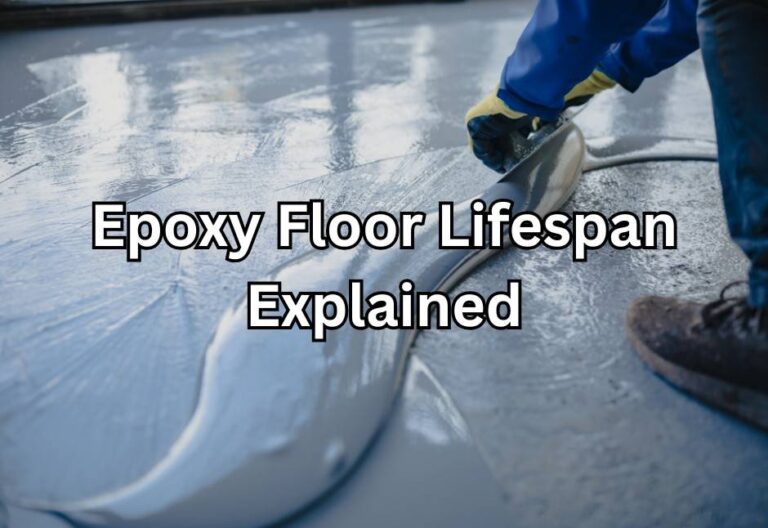Is Epoxy Flooring Worth It? Cost vs Value Analysis
Let’s cut straight to it. You’re looking at your old, beat-up concrete floor and thinking epoxy might be worth the investment. Perhaps a friend said their garage floor still looks wonderful after five years. Or you might raise animals and desire resilient flooring.
The debate is really not about whether epoxy-based floors are “good” or “bad”. It’s a question of whether the maths works for your specific needs.
What IS the Real Cost of Epoxy Flooring in Perth?
Here’s where things get intriguing. The cost of epoxy flooring for Perth homeowners varies significantly.
The simplest one-coat system for a home garage? Fairly manageable. A complete commercial system with decorative flakes and custom finishes? That’s a different story entirely.
Epoxy is best compared to painting your concrete. Wrong comparison. It’s for what the flooring will cost you over a period of ten or fifteen years, because that’s about how long excellent epoxy floors last.
Think about tile maintenance. Consider the expenses associated with grout work. The cracking. High-traffic areas incur replacement costs. Epoxy takes most of that drama out.
Breaking Down the Real Costs
It’s time to have an honest discussion about money, free from marketing jargon.
What you will actually pay depends on several factors:
- The condition of the concrete: Crumbling slabs will have to be resurfaced before painting, adding to cost but precluding future breakdowns. According to RSMeans construction cost data, appropriate surface preparation can substantially affect the total installed cost of a coating system as well as its life.
- Size of the space: The more space, the cheaper it is per m², as setup costs are spread across a bigger area.
- Finish type: Finishes like flake flooring are pricier, but they provide extra slip resistance and aesthetic appeal.
- Industry requirements: floors for kitchens or abattoirs involve installing a particular system that must comply with high hygiene standards established by the FDA for food facility surfaces.
Each of these options varies significantly in cost depending on your specific situation.
The Hidden Costs Nobody Talks About
This is where the reality sets in.
Everyone looks at upfront installation costs, but that’s only half the equation.
Here are the hidden costs with other flooring:
- Ongoing maintenance: Other floors require waxing, special cleaners and stripping once a year. Epoxy just needs a quick mop.
- Loss of business: Whether you’re installing or repairing your floor, every day that you must close your business is costing you money. Proper epoxy installation takes days, not weeks.
- Damage repair: Chip a tile and you’re substituting multiple pieces to match. Most epoxy damage can be fixed as spots.
These hidden costs can add up quickly over time. A cheaper floor up front can even be to your detriment, potentially costing you far more when you add up all the maintenance, repairs and lost productivity.
Where Epoxy Flooring ROI Really Shines
OK, so you’ve spent the money. What are you really getting back?
Longevity That Actually Pays Off
Correctly installed, a commercial epoxy floor should last at least 15 to 20 years. Are you referring to industrial applications with heavy traffic? We are still looking at a lifespan of 10-15 years. Compare that to vinyl (5-10 years), regular concrete sealing (3-5 years) or tile with grout problems beginning at about year seven.
Do the maths. If epoxy costs two times what the bastard does up front and lasts three times as long product-wise, you’re in the green.
Property Value Impact
Here’s one that shocks people: flooring actually does increase the value of a property. The increase in value is significant. A garage, workshop, or commercial space with nice epoxy floors conveys to buyers that the property has been well-maintained.
You know what looks better than a garage having stained, cracked concrete… A PRO professional epoxy flake system! For commercial properties, already having high-quality floor coatings is just one less big-ticket item potential buyers have to worry about.
Energy Efficiency Nobody Mentions
Epoxy systems in lighter shades of colour reflect light more than concrete does. It may seem small, until you multiply those costs by how much you would be spending for a decade of lighting in that warehouse.
If you choose lighter epoxy systems for the final finish, some businesses can save 20–30% on lighting costs. That’s money in your pocket every single month.
When Epoxy Makes Complete Sense
In certain situations, it would be unwise not to use epoxy.
Listen, if you’re facing any of these situations, you’re not exactly weighing options anymore.
You’re just determining what epoxy system that you want:
- Garages: Oil stains, tyre marks, and chemical exposures require epoxy. No one else takes that abuse without going all drab fast.
- Industrial Walworth warehouses: Forklifts and weighty cargo require floors that won’t break or chip. Industrial epoxy flooring delivers.
- Commercial kitchens: polyurethane cement systems are a must, with their continuous moisture downtime, temperature changes, exposure to harsh chemicals, and need for constant sanitised conditions. The FDA Food Code mandates smooth, durable, and easy-to-clean floors in food facilities in order to avoid cross-contamination.
- Retail spaces: Styles in stone-look or washed-look flooring add the décor you want with commercial durability.
If you fall into any of these categories, there’s no question about whether epoxy is worth it—the question becomes which system best suits your needs.
When You Might Want to Reconsider
Honesty time. It appears that epoxy is not always the solution.
If you have grave issues with your concrete slab overall – such as major settling, cracking throughout the pour, or moisture issues that haven’t been addressed – epoxy isn’t going to resolve those underlying problems. You’ll have to take care of those first, and that changes your budget equation entirely.
It’s not worth the investment for a pop-up space. And if you are in a location for just two years, the long-term benefits of epoxy won’t mean much to you.
Very small residences with concrete that is already in excellent condition may get by with a high-quality concrete sealer instead. And there’s no sense in overshooting the mark with what you actually need.
The Installation Quality Factor
Here’s the mistake we make most frequently: we only concentrate on material costs and don’t consider installation quality. That’s like going out and buying premium paint but having your kid’s mate paint it on.
Epoxy flooring ROI assassins: bad installation murders. Bad installation reduces the ROI of epoxy flooring faster than any other factor. If the concrete isn’t properly prepped, if moisture testing isn’t done correctly, if cure times aren’t fully respected — you’ll encounter issues. Peeling. Bubbling. Premature wear.
Professional installers are familiar with the varying curing times due to Perth’s climate. They know the drill when it comes to preparing concrete. They never cut corners because they understand that taking shortcuts can lead to negative consequences later on.
There might be a 20–30% price difference between professional attire and something cheaper.” The performance difference? The distinction could mean the difference between a floor that lasts for twenty years and one that deteriorates in just three years.
Real-World Cost vs Value Comparison
Let’s get down to specifics with a few use cases.
A standard 40-square-metre home garage with an epoxy floor system costs a couple of thousand dollars in materials. That’s a couple of hundred bucks annually over 15 years. Good luck finding a garage floor for that amount each year that performs this well.
A 200-square-metre warehouse: the figures start to get intriguing here. As I mentioned, although a commercial system has a higher initial cost, it offers very low maintenance, enhanced safety, and no need for replacement for 15 years, which improves the return on investment (ROI).
Commercial Kitchen: Food-grade flooring in a restaurant kitchen will necessarily need food-grade floors that are up to health code standards. Polyurethane cement is pricier than an off-the-shelf epoxy, but a single failed inspection or trip-and-fall lawsuit costs multiples of the price difference invested in that floor.
Making Your Decision
So, is it worth it? Well, what does “worth it” mean?
If you’re simply looking for the absolute cheapest option right now and don’t care what might happen in five years, epoxy likely isn’t your answer.
However, if you are considering the long term, value convenience, and prioritise longevity with minimal maintenance, then the cost versus value of epoxy flooring strongly favours epoxy.
For commercial and industrial purposes, it’s not so much a question. The durability, safety factors, low maintenance needs, and longevity of epoxy make it a practical choice for most places.
For home garages and workshops you actually use (and not just for parking a car that can no longer leak anything), epoxy provides increasing value over time.
What You Should Do Next
Stop comparing epoxy to paint. Start comparing it to real flooring options that really do last.
Obtain quotations from experienced installers who can evaluate your circumstances. A conference room has different needs than the floor of a mining operation or a veterinary clinic.
Learn about preparation processes and cure times, as well as what happens if something goes wrong three years down the road. It’s the answers to those questions that tell you far more about value than the price per square metre ever could.
Check out finished projects like yours. Shop flooring is not the same as warehouse flooring.
Think about the total life cycle cost, not just installation day. That’s where the true story of epoxy floor ROI resides.
Good epoxy done by a competent installer is one of those deals where you pay at the register and enjoy all year. Less expensive alternatives, which require constant upkeep, end up being pricier and less effective.
That’s not marketing speak. That’s just maths.

